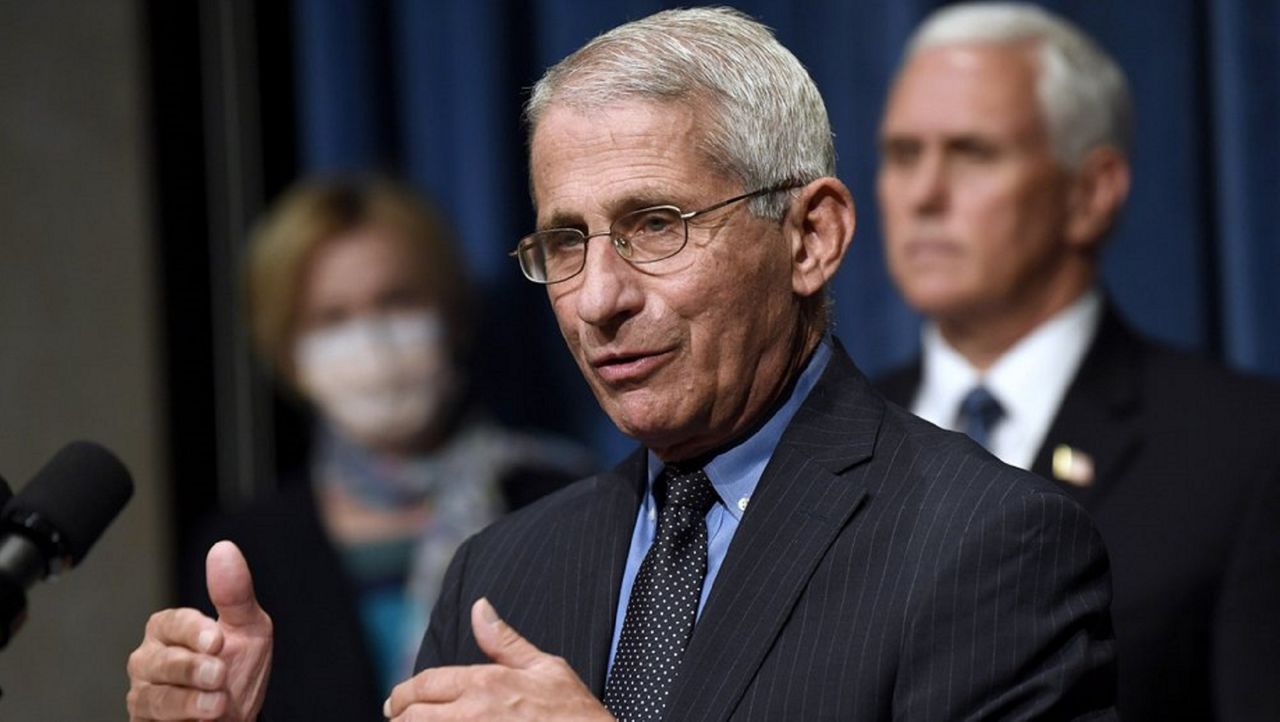NATIONWIDE — There are "troublesome" signs about the long-term effects that COVID-19 can have on young people, Dr. Anthony Fauci, the nation’s top infectious disease expert, said Monday.
During a keynote address to the American Society for Microbiology, Fauci said, according to CNN: “We’d better be careful when we say, ‘Young people who don’t wind up in the hospital are fine, let them get infected, it’s OK.’ No, it’s not OK."
His comments come as many schools in the U.S. are opening classrooms again, some with disastrous results, as clusters of new coronavirus cases have developed.
Fauci, director of the National Institute of Allergy and Infectious Diseases, said young people who are infected by the virus but otherwise healthy might be more likely to avoid hospitalization than older adults, “but do get sick and symptomatic enough to be in bed for a week or two or three and then get better, they clear the virus -- they have residual symptoms for weeks and sometimes months.”
He also said follow-up exams have revealed many young patients who have recovered from the coronavirus have developed heart conditions.
They “have a substantially high proportion of cardiovascular abnormalities, evidence of myocarditis by MRI and PET scans, evidence of emerging cardiomyopathies," Fauci said.
He added that new information is still coming to light about the impact of the coronavirus on young people. He also issued a guarantee: “If we have this conversation again, six months to a year from now, we’ll be reviewing the literature about talking about the long-term deleterious effects of non-hospitalized patients."
The World Health Organization warned Tuesday that the spread of COVID-19 is being driven by people in their 20s, 30s and 40s, many of whom are asymptomatic and unaware they have been infected.
WHO says the proportion of younger people infected is rising, putting those who are more vulnerable to the disease — the elderly or people with underlying condition — at risk worldwide.



